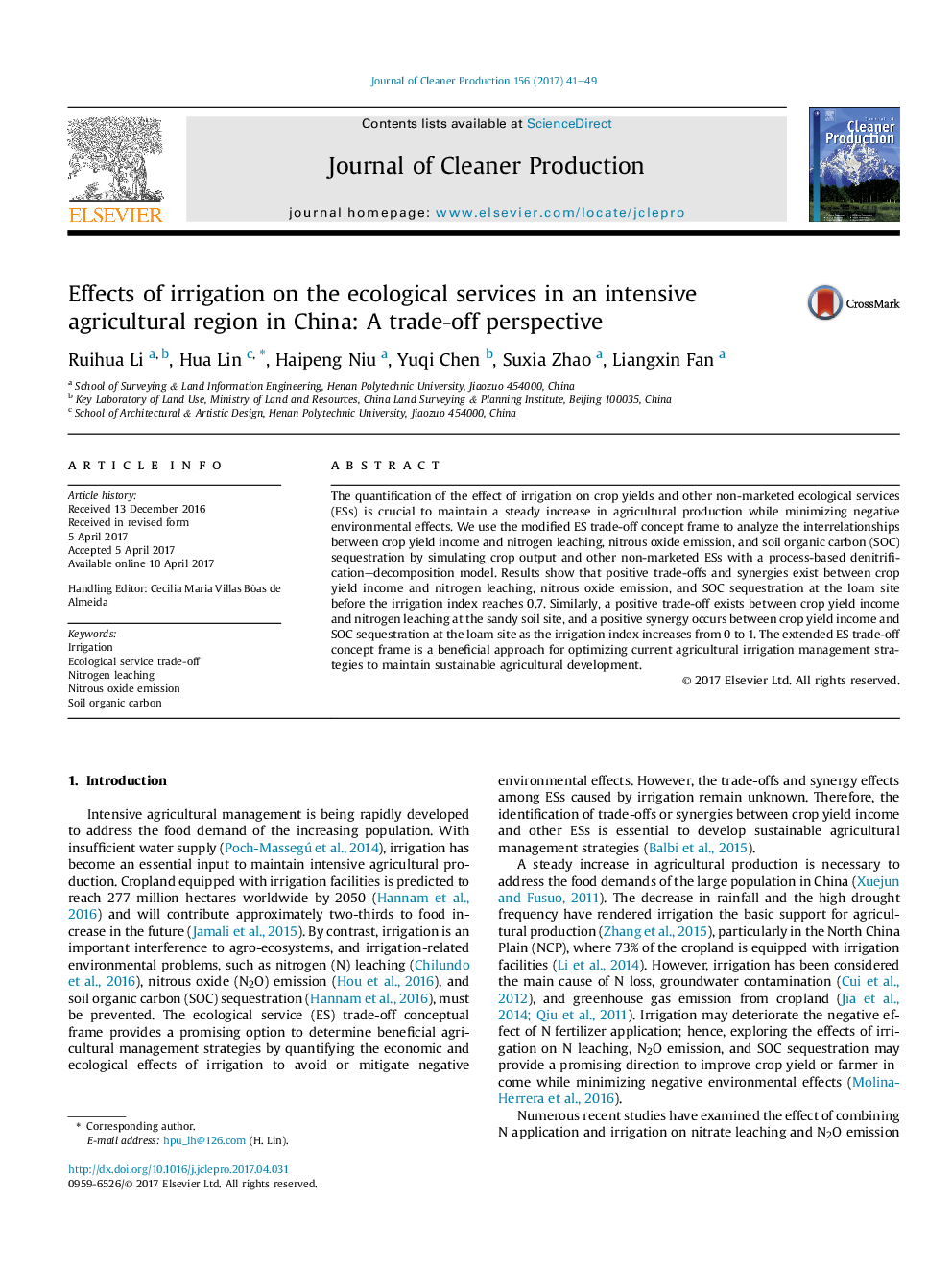| Article ID | Journal | Published Year | Pages | File Type |
|---|---|---|---|---|
| 5480962 | Journal of Cleaner Production | 2017 | 9 Pages |
â¢Classifying the trade-offs and synergies between ecological services.â¢Income Consumption Curve was used to quantify the “win-win” relationship between ecological services.â¢Increasing irrigation exerts positive effects on the ecological services before irrigation index reaches 0.7.â¢The inflection interval of the ecological services changing is between irrigation indexes of 0.7 and 0.8.
The quantification of the effect of irrigation on crop yields and other non-marketed ecological services (ESs) is crucial to maintain a steady increase in agricultural production while minimizing negative environmental effects. We use the modified ES trade-off concept frame to analyze the interrelationships between crop yield income and nitrogen leaching, nitrous oxide emission, and soil organic carbon (SOC) sequestration by simulating crop output and other non-marketed ESs with a process-based denitrification-decomposition model. Results show that positive trade-offs and synergies exist between crop yield income and nitrogen leaching, nitrous oxide emission, and SOC sequestration at the loam site before the irrigation index reaches 0.7. Similarly, a positive trade-off exists between crop yield income and nitrogen leaching at the sandy soil site, and a positive synergy occurs between crop yield income and SOC sequestration at the loam site as the irrigation index increases from 0 to 1. The extended ES trade-off concept frame is a beneficial approach for optimizing current agricultural irrigation management strategies to maintain sustainable agricultural development.
